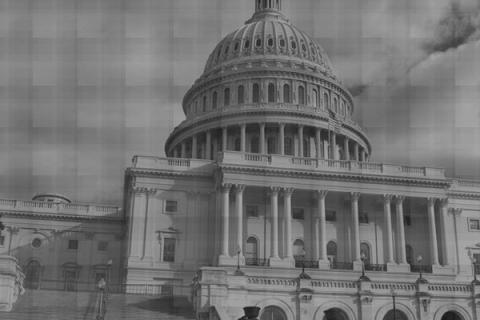Gov. Brown's budget faces two crucial votes on Thursday. One vote is for the budget itself, and the other is for the special election in June for a tax extension.
Due to Proposition 25 passing last November, the budget can now pass with a simple majority. However, the tax extension measure must pass by two-thirds. Gov. Brown is short two votes in each house. Even it does pass, there is no guarantee voters will approve it. If it doesn't, Brown says that the already Draconian budget cuts will pale before what will come next.
The budget plan includes eliminating redevelopment districts and taking revenue earmarked for other purposes to be used by schools instead. This prompted Republican Assemblywoman Diane Harkey to ask precisely how much of the budget plan is based on diverting funds and one-time cuts. She has a point. California has been, in effect, borrowing from one credit card to pay off another one for years. Obviously, this is not an economically sound way of balancing the budget.
Such budget machinations will of course ensure that battalions of lawyers have ample work for the foreseeable future. The League of California Cities says it will sue to block dissolving the redevelopment agencies because it violates the ban on the state borrowing from local governments passed in November's Prop 22. The First 5 Commission may do likewise if the legislature tries to grab its almost $1 billion in reserves to use for Medi-Cal for children. It was mandated by the passage of Prop 10 in 1998 to tax tobacco and use the money for early childhood education. In one of those deeply convoluted money grabs that California budget watchers have become accustomed to seeing, the legislature says it thinks it can grab the money without asking for voter approval as long as it is done only once. Further, Democratic legislators are apparently promising First 5 that if they can grab the money now, they won't ever do it again. No, I am not making this up.
Two things are clear from all this. First, the legislature and Gov. Brown are still too often trying to use short-term money grabs to balance the budget. But this is no long-term solution, as the money has to be paid back and the services that the money originally provided for have to be funded somehow. They can of course be eliminated, but that can also lead to undesirable consequences too. Second, California's unwieldy and out of control proposition system often results in unfunded mandates, earmarking revenue for a single purpose only (rather than where needed), and a confusing and often contradictory patchwork of laws and regulations that hinder rather than help.
California has been lurching from crisis to crisis for years. The fixes are generally short-term and ill-conceived, with little thought given to any future except for the immediate. Clearly, this needs to change. The vote on Thursday is important. If either measure fails, then Gov. Brown's budget plan is dead and there is no viable alternate plan.

